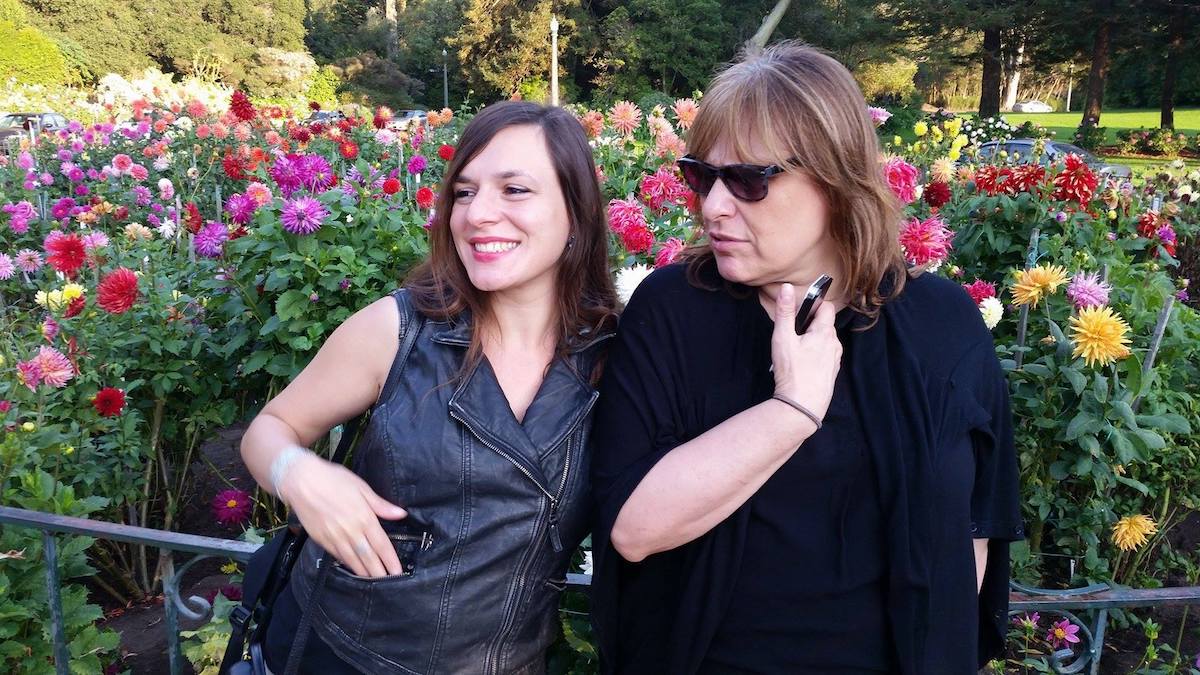Anti-vaxxing, homophobia, pro-Russian sentiments – is the church an obstacle on Georgia’s pro-Western course?
The church is the most influential institution in Georgia, however, many of its ideas coincide little with the pro-Western policy of the authorities.
Experts say the church is a fount of homophobia, spurts pro-Russian sympathies and is a source of other contentious points of view.
With the approach of the country’s important parliamentary elections scheduled for October 2020, this hidden tension may escalate.
Due to the coronavirus pandemic, the doors of Christian churches in most countries have been closed for months, but in Georgia, not only have Orthodox churches largely remained open, they have called on believers to attend services. Even during Georgia’s semi-lockdown, the Georgian Orthodox Church refused to comply.
This behavior of the church once again divided society and sparked a debate about whether the Georgian Orthodox Church sees itself as above the law.
In addition, influential clergymen in their sermons threatened that they would not allow for the vaccination of the population against the coronavirus – despite the fact one has yet to be produced.
The messages of the church are not going unnoticed: “Prayer is especially necessary when a person is in trouble. What should desperate people do if the church is closed because of the coronavirus?” says 64-year-old Manana Kvantaliani, who has visited St. Nicholas Church every weekend for 30 years.
- Coronavirus and the Church of the Last Days – why the Georgian church won’t cancel services
- Georgia and coronavirus: success or sheer luck?
- Is the pandemic a chance for the ruling party in Georgia?
She says that although she has diabetes and is at risk, she nevertheless attended all services during a state of emergency.
“Terrible things were written about us on Facebook. That we are killers, that a ‘church cluster’ will appear, that we will all become infected. So where is this cluster? No one in the church can get sick. If you have faith, you are not afraid of the virus.”
Indeed, the forecasted outbreak did not materialize.
There were a couple of cases of infection of a priest and subdeacon, but mass infections were avoided.
However, experts say that the church’s decision to disobey the general rules was important in another way – the church showed that despite several recent high-profile scandals, it remains the most influential force in the country and its word means a lot.
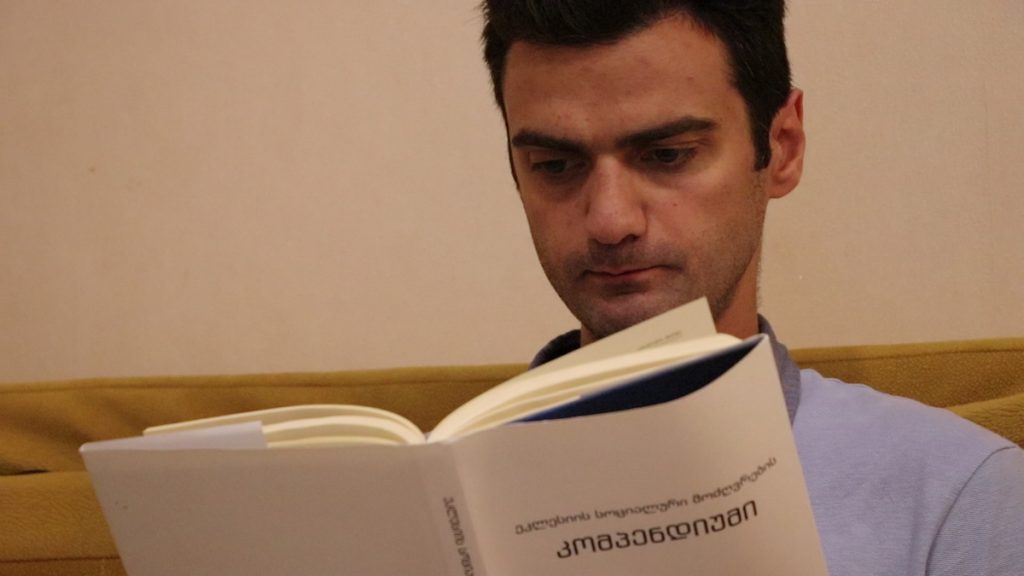
“The church is trying to restore its authority and influence the masses. In practice, it is about uniting fanatical and extremist forces, which, if necessary, will oppose the government, so that there is something to bargain with. In this way, they will receive more benefits,” said theologian Giorgi Tiginashvili.
In anticipation of the decisive elections, the authorities, according to experts, have neither the strength nor the desire to confront the faithful and the conservative segment of society.
“In practice, the state refused to fulfill its function. The ruling party, Georgian Dream, realizes that it needs the help of the church and cannot afford to conflict with it,” said political analyst Gia Nodia.
The strongest, richest and most influential
The revival of the Georgian Orthodox Church began in the early 1990s after Georgia gained independence, and religion filled the ideological vacuum created by the collapse of the Soviet Union.
Today, the Orthodox Church is one of the richest and most well-organized structures in Georgia. Every year it receives about 25 million lari [about $8 million] from the central budget, and it also owns a large amount of real estate – the patriarchy owns more than 62.7 square kilometers of land, which is equal to the area of the city of Batumi.
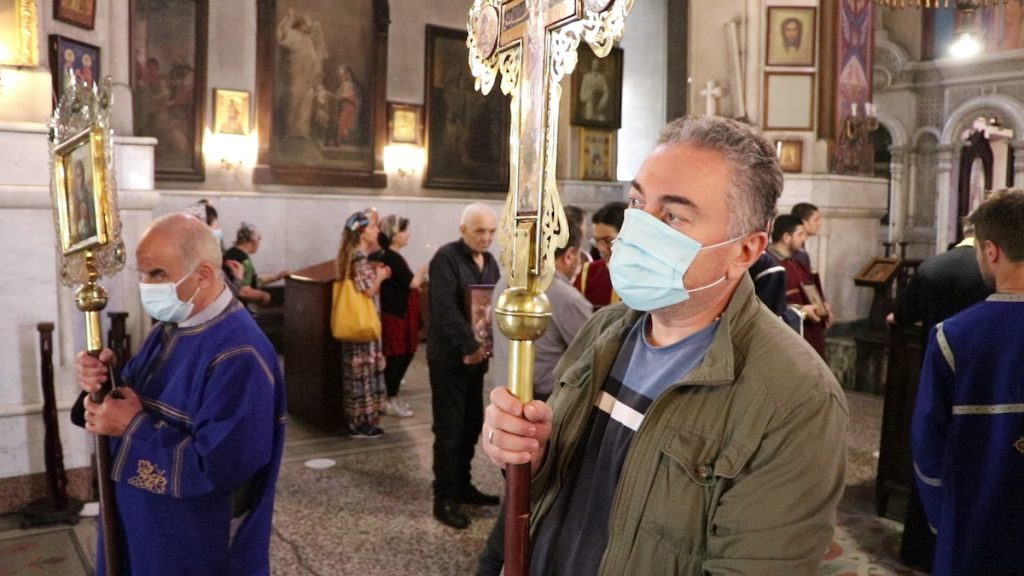
The Georgian Church is led by a synod of 47 bishops. 41 of them are engaged in entrepreneurial activities, enjoy tax and other benefits and have substantial property.
According to the 2014 census, 83 percent of Georgian citizens consider themselves Orthodox Christians.
According to a poll published by the US National Democratic Institute (NDI) on January 16, 2020, 66.3 percent of respondents fully trust the Georgian patriarch, and the church’s rating is 50 percent.
This is the lowest rate compared to previous polls.
For the last two or three years, the church has been going through a difficult period as it has been constantly shaken by scandals.
Catholicos-Patriarch of Georgia Ilia II is 87 years old and is often sick, so there is a fierce struggle in the church for the patriarchal throne.
The first scandal was the so-called ‘Cyanide Case’ in early 2017, in which Archpriest Giorgi Mamaladze was arrested. According to the original version of the investigation, he had intended to poison the patriarch with sodium cyanide. However, he was later convicted of attempting to poison the secretary-referent of the patriarch.
This led to a snowball process within the church.
The clergy divided into different camps, accusing each other of various crimes or serious sins. It got to the point that one of the members of the synod, Archbishop Petre, publicly accused the patriarch of pedophilia.
The clergy also publicly accuse each other of corruption and the ‘sin of sodomy.’
“Recent events have seriously damaged the reputation of the church, it is steadily going down, but so far for the government to make any power moves”, said Giorgi Tiginashvili.
According to him, the coronavirus pandemic, as well as the upcoming elections, are a good chance for the church to prove that it is still strong and influential.
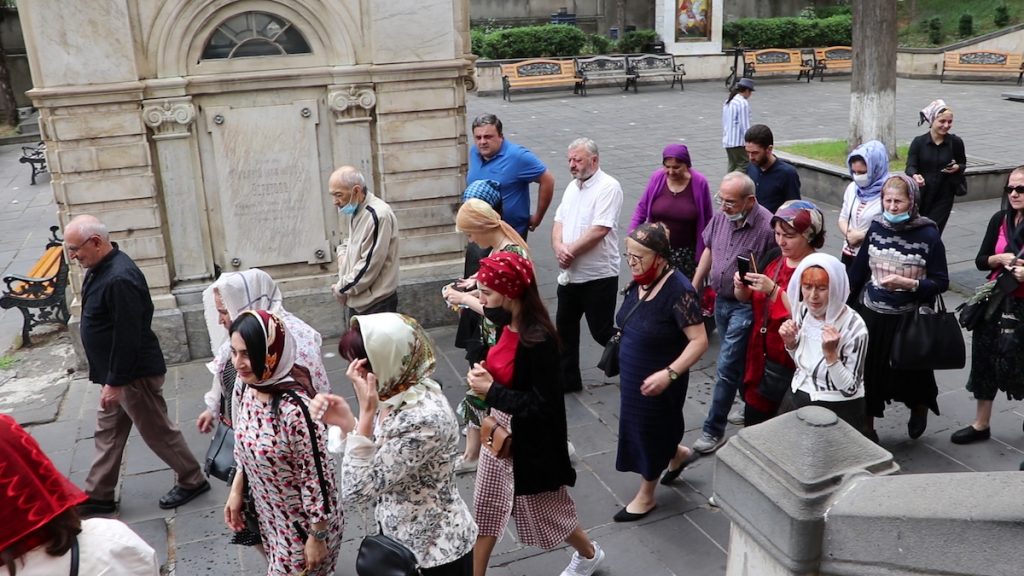
The church, which showed its influence during the state of emergency, has already received the first material benefit – a few weeks ago the parliament, on the initiative of the ruling party, passed a law allowing Orthodox churches and monasteries in the country to purchase up to 20 hectares of nearby forest.
“There will be many more such gifts before the election. The current government will make the most of all resources, including church support, to maintain power. And the church, of course, will not refuse any gift,” Tiginashvili said.
(Non) separation of church and state
In elections, the church often plays an important role.
For example, in the 2012 parliamentary elections, when the church declared political neutrality, some clergy in their sermons campaigned against the then-government led by Mikheil Saakashvili, in favor of the Georgian Dream and its leader Bidzina Ivanishvili.
You can find dozens of videos with such sermons on YouTube.
Experts say that this time the church will not be an independent observer. The theologian Levan Abashidze considers this situation natural:
“The opposition, and in particular the Unified National Movement (the party of former President Saakashvili), is more characterized by liberalism. The church is a supporter of traditions, it is more inclined to the ruling party, because it is believed that this party values traditions more.”
The problem is not only in the church, but mainly in politicians who are constantly trying to use the church and manipulate it, says Abashidze.
Politics is not the only area of life where the church intervenes.
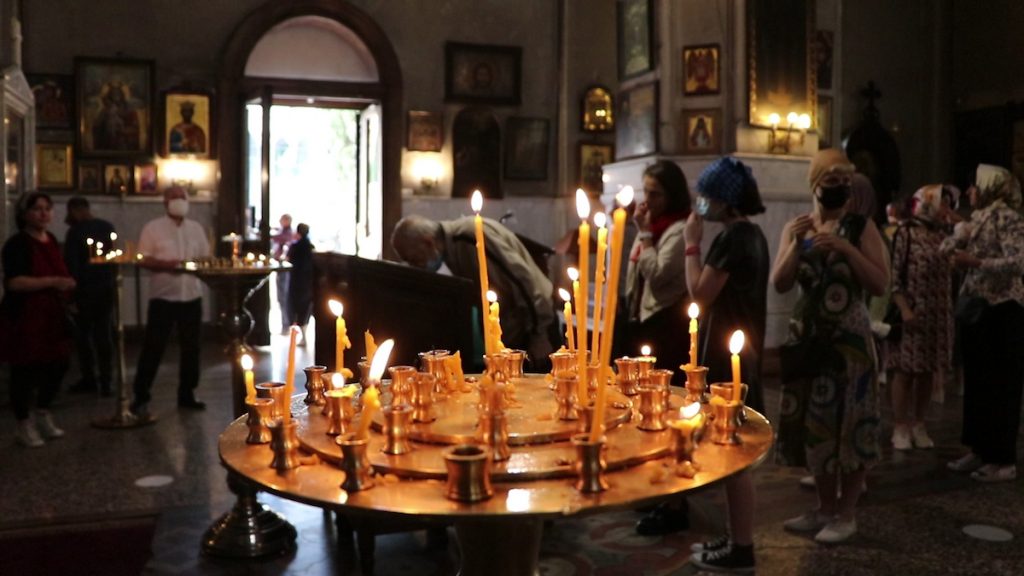
Recently, church members came to a parliamentary session, where the introduction of sex education lessons was being discussed and disrupted the meeting, since the church was against teaching this subject in schools.
The clergy were also strongly opposed to the discussion of an anti-discrimination law, the essence of which is the fight against discrimination on various grounds, including religion and sexual orientation.
The parliament nevertheless passed the law because it was required by international institutions, but in a form that was greatly modified at the request of the church.
The influence of the church can be seen in public life too. For example, priests mobilized parishioners for actions against electronic identification cards, because they saw in them a “sign of the devil”.
Last year, priests and radical organizations tried to disrupt the movie screening of a movie about same-sex love.
Priests participating in an anti-LGBT protest
On May 17, 2013, a crowd led by priests brutally dispersed a rally dedicated to the Day against Homophobia. And in 2014, the patriarch decided to declare this day Family Holiness Day.
Since then, hundreds of people – clergymen and parishioners – gather on May 17 and stage marches with crosses and icons, and supporters of the LGBT community are afraid to go out on this day.
“The church has always been a force that can veto civil decisions. It claims to be above the law and the constitution”, said political analyst Gia Nodia.
During the pandemic, the Georgian clergy made a number of pseudo-scientific, or downright unscientific, statements.
For example, Archbishop Nikoloz called the future vaccine against coronavirus a “diabolical action”. Another bishop, Saba, announced during a sermon that this vaccine would be created to “enslave” and that “today’s virus is a tool in the hands of the devil to influence people.”
Such statements, “in addition to the illiteracy of church representatives,” are also dictated by the Russian information agenda, said theologian Giorgi Tiginashvili:
“The Russian church and the Kremlin intimidate people with such things as gay marriage, debauchery in the West, claims that the West is trying to seduce us and enslave us with the help of chips, vaccines and so on. These messages are the same everywhere the Kremlin has the ability to distribute them.”
Russia or the West?
During a Sunday sermon on May 24, an influential clergyman, synod member Bishop Anton told his parishioners that there was an organized attack on the Georgian church and that the West was behind all this.
He criticized non-governmental organizations funded by the West, saying that “they are trying their best to make people hate the church and support the LGBT community.”
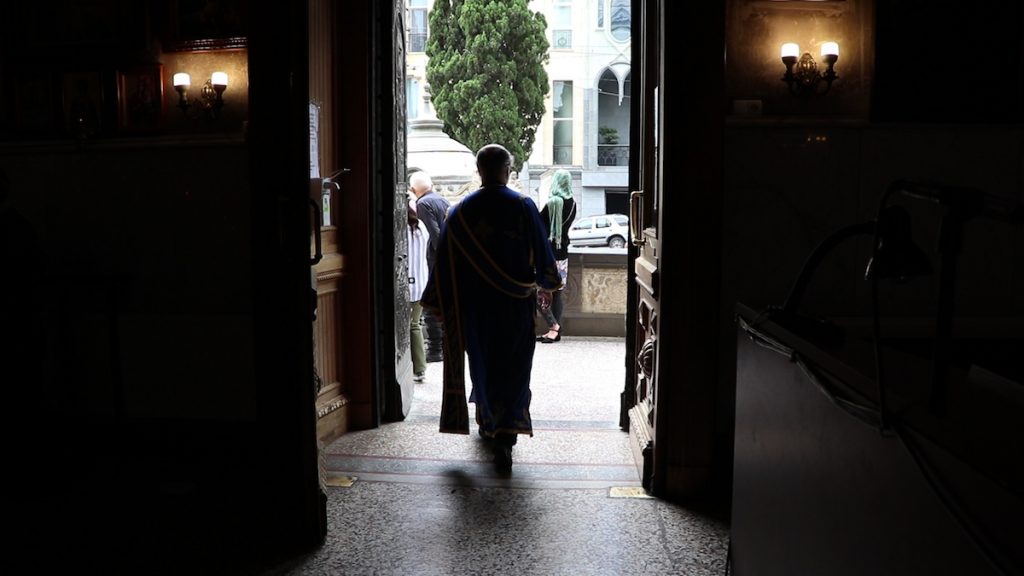
He also took the initiative to hold a referendum on the question – “Do we want such a Europe?”
Officially, the Georgian patriarchate supports the pro-Western course of the Georgian government.
However, in their sermons, priests often preach the exact opposite, saying Western values are incompatible with Georgian traditions.
“When clergymen make such statements, it speaks of a certain degree of freedom within the church. They think so and so preach. But this does not reflect the position of the church,” Archpriest Andria Dzhagmaidze, press speaker of the patriarchy, commented on such sermons of the clergy.
The cautious attitude of the Georgian patriarchate towards Russia and the Russian Orthodox Church manifested itself in relation to the topic of autocephaly of the Ukrainian Church.
According to experts, the Georgian church is in no hurry to recognize autocephaly and makes cautious statements in this regard out of fear of spoiling relations with the Russian Church.
A study conducted by Internews-Ukraine on the coverage of Ukrainian autocephaly in several post-Soviet countries, including Georgia, showed that Russian narratives about Ukrainian autocephaly were “universal” for these countries.
The most common message is that the Orthodox world must unite in order to confront the West.
The study showed that the Kremlin found its Achilles’ heel in all countries and, with the help of local churches, distributed relevant messages. For example, in Georgia, the issue of Ukrainian autocephaly was considered in the context of Russia’s non-recognition of the independence of the Abkhaz church, and in Armenia Ukraine was represented as an ally of Turkey.
Levan Abashidze, a theologian close to the patriarchy, says that the position of the Georgian church is not pro-Russian, but cautious:
“The patriarch has always been pro-Georgian. Russia is a single-faith country and will always be our neighbor. We all understand that sooner or later something will change, and we do not need to burn bridges.”
“The Russian special services use every opportunity and probably also uses the church, but this does not mean that our church is full of Russian agents and conducts Russian politics. This is not so,” says Abashidze.
In his opinion, the result of the constructive attitude of the Georgian Church towards the Russian Church is that the Russian Church does not recognize the independence of the Abkhaz Church and considers it part of the Georgian Church.
Giorgi Tiginashvili takes a different look at the role of the church. According to him, “the patriarchy usually stands behind any problems in society in recent years.”
“Church officials directly say that human rights are part of Soros’s campaign against the church and that this is an attempt to destroy it. Of course, such an attitude towards the West and progress impedes social development,” he says.
The theologian believes that although the church declares its support for the country’s western course, “in fact, it impedes the development of the state in the direction of democratization and, in general, the progress of European integration.”










